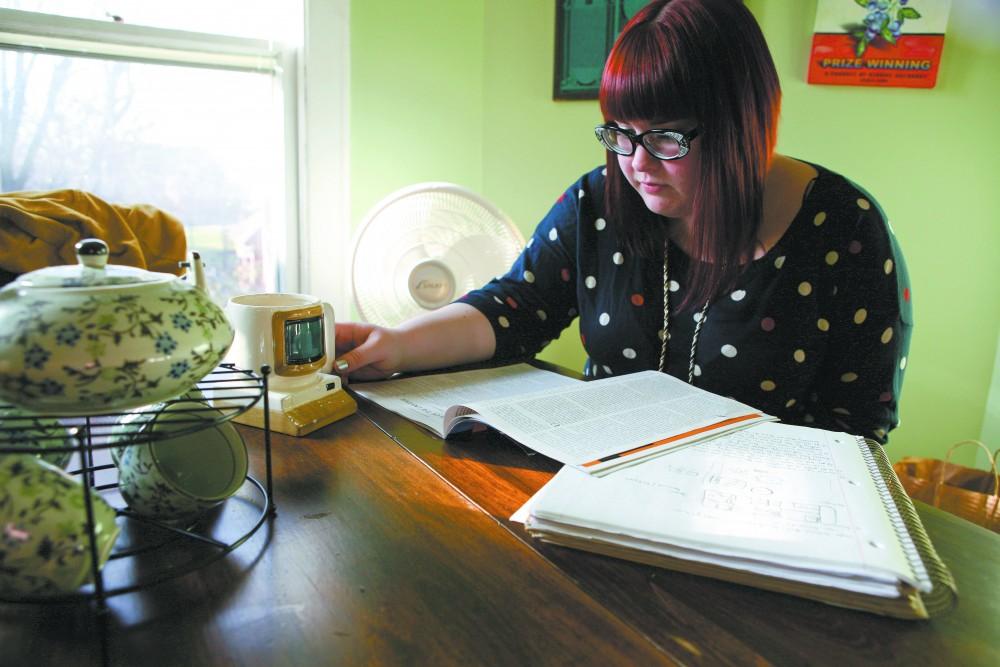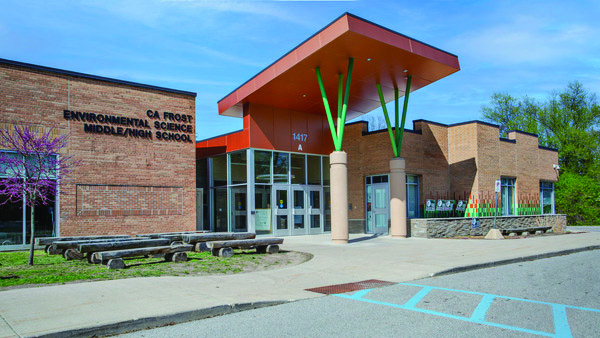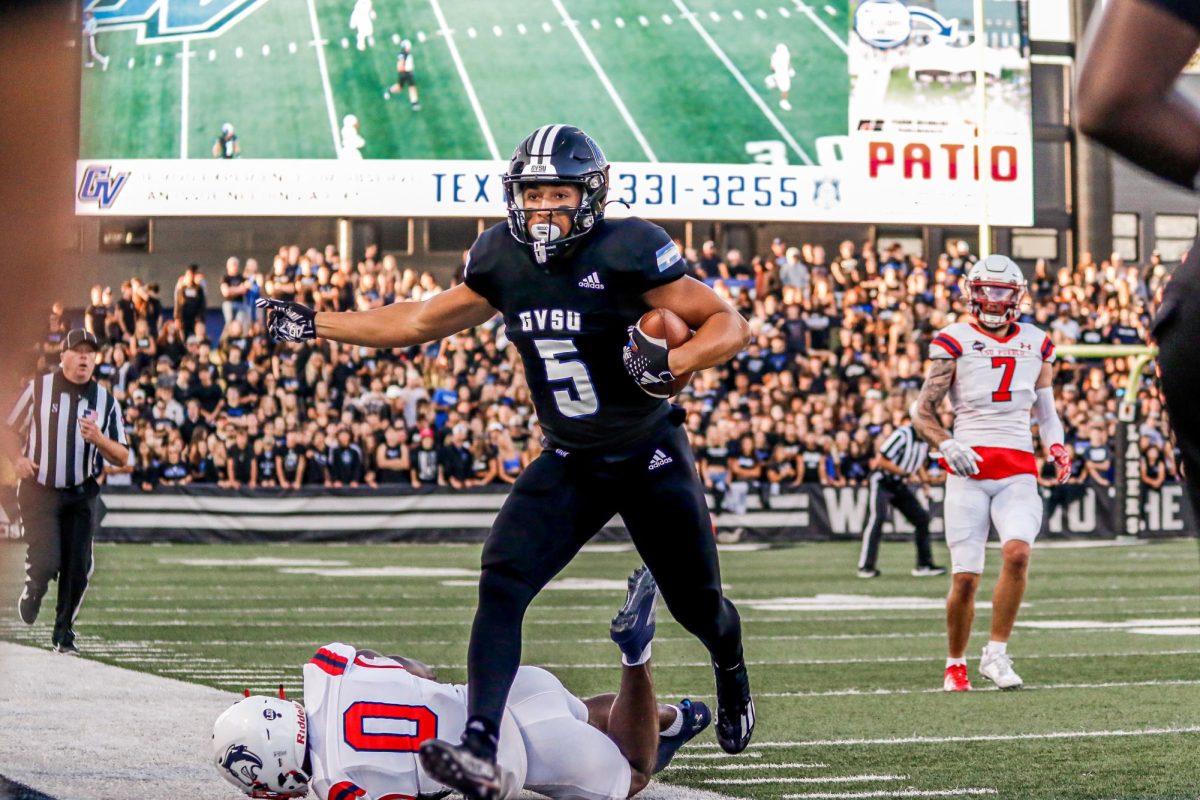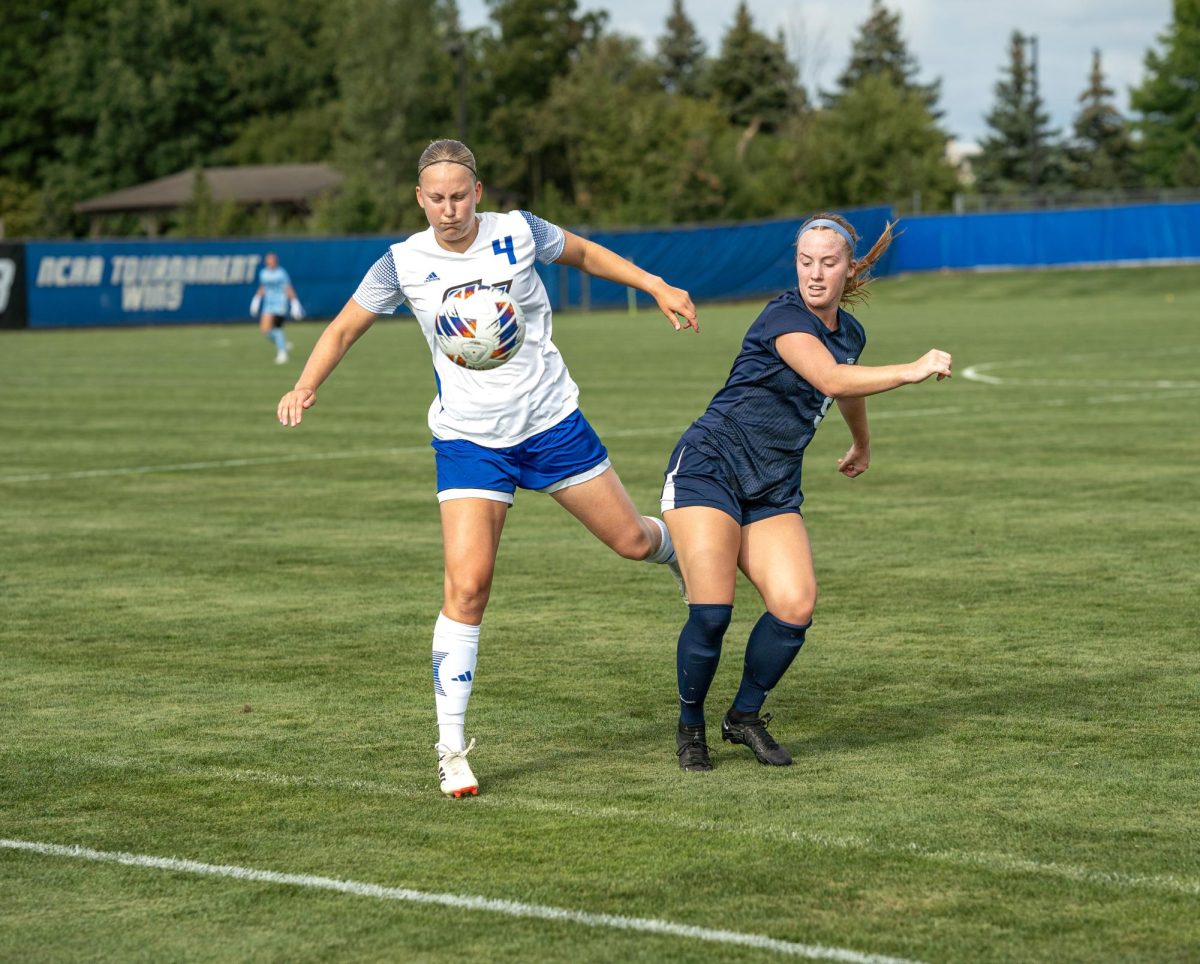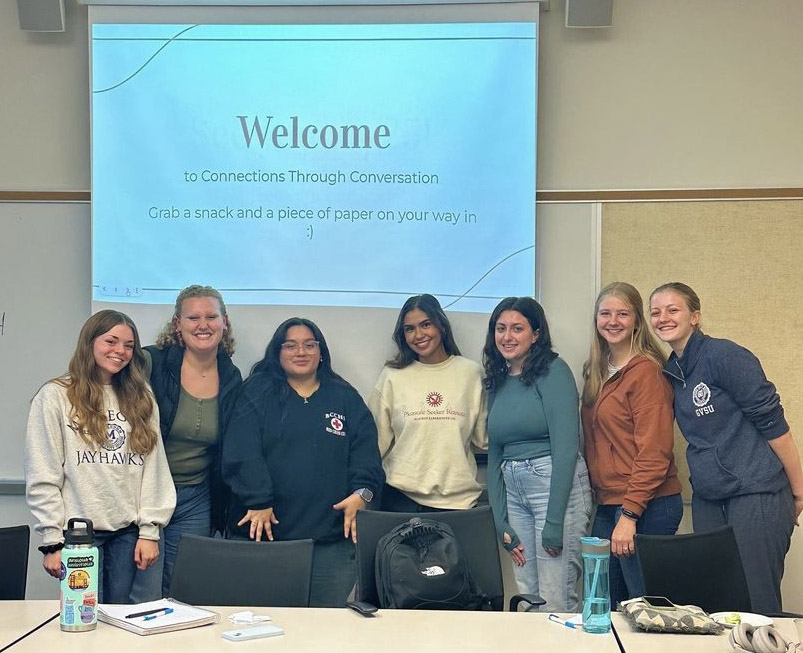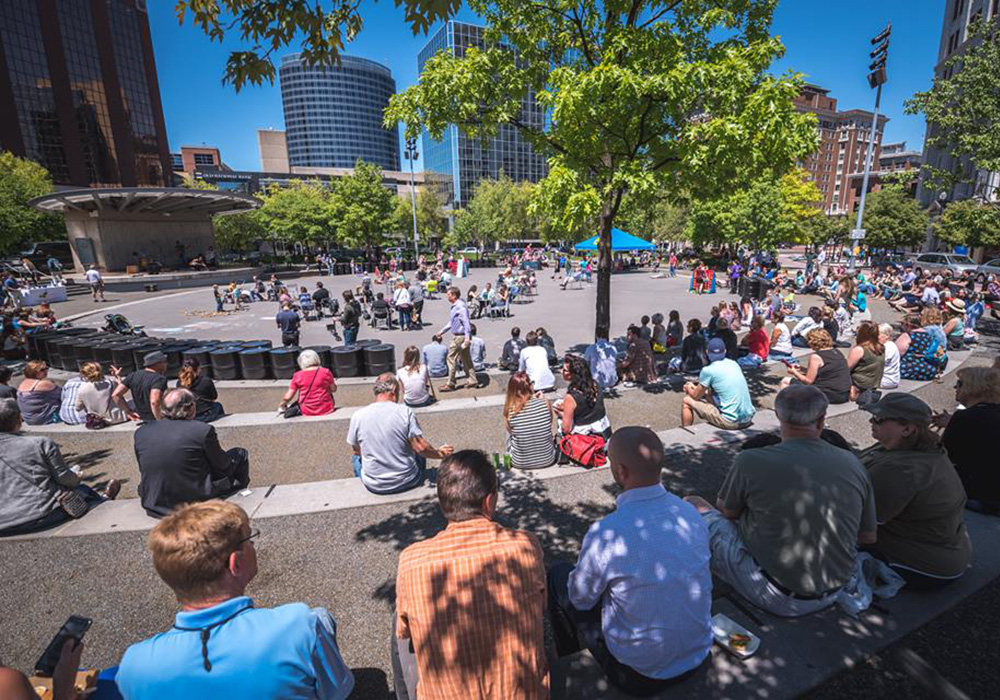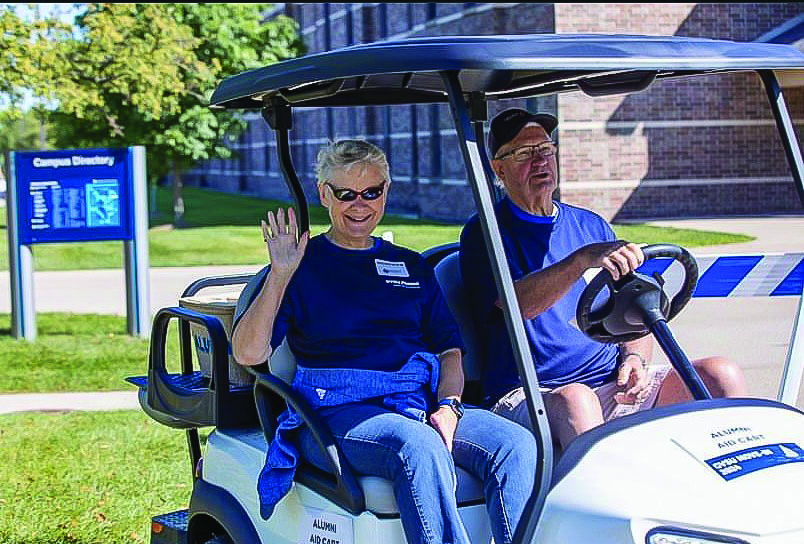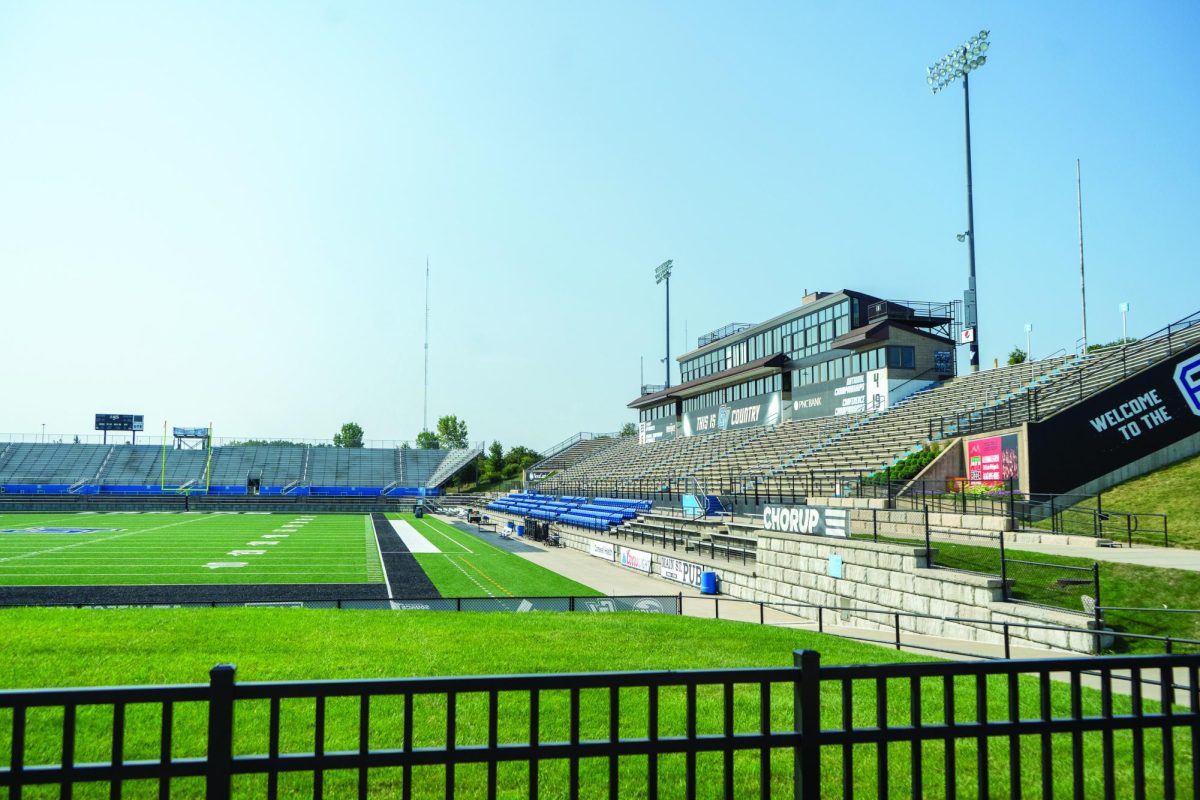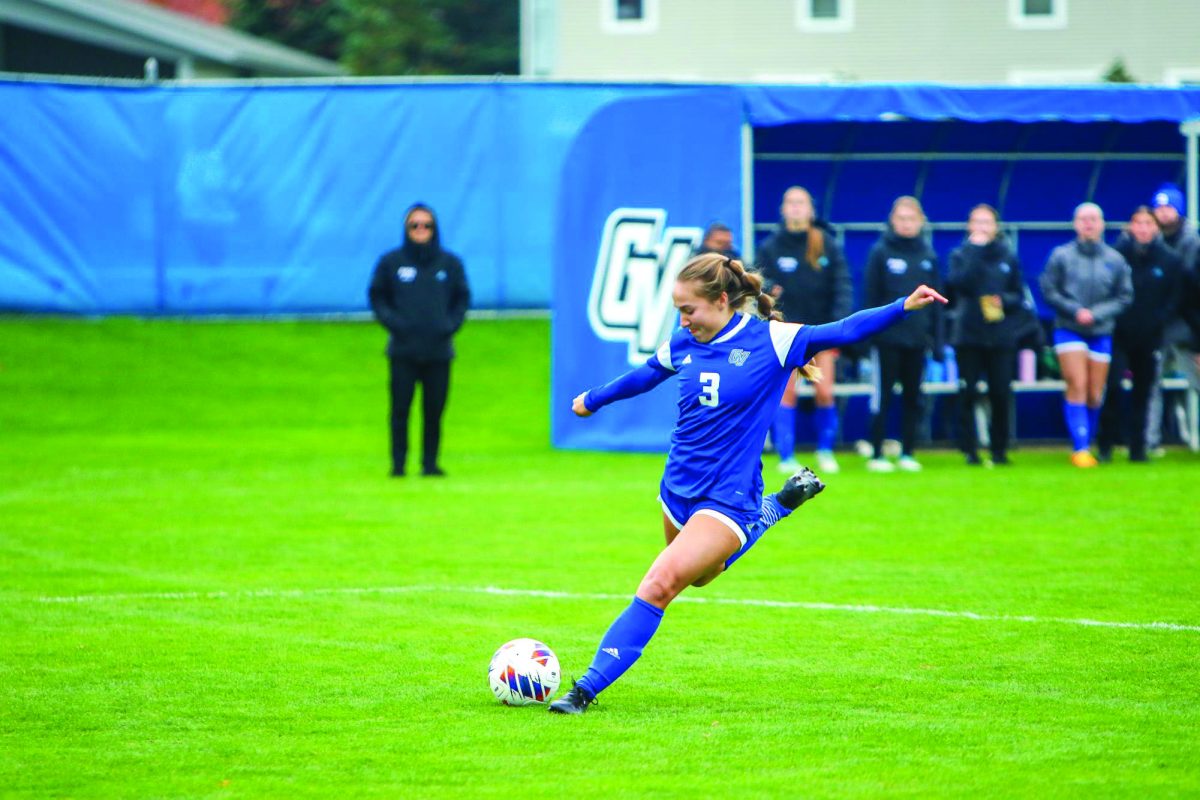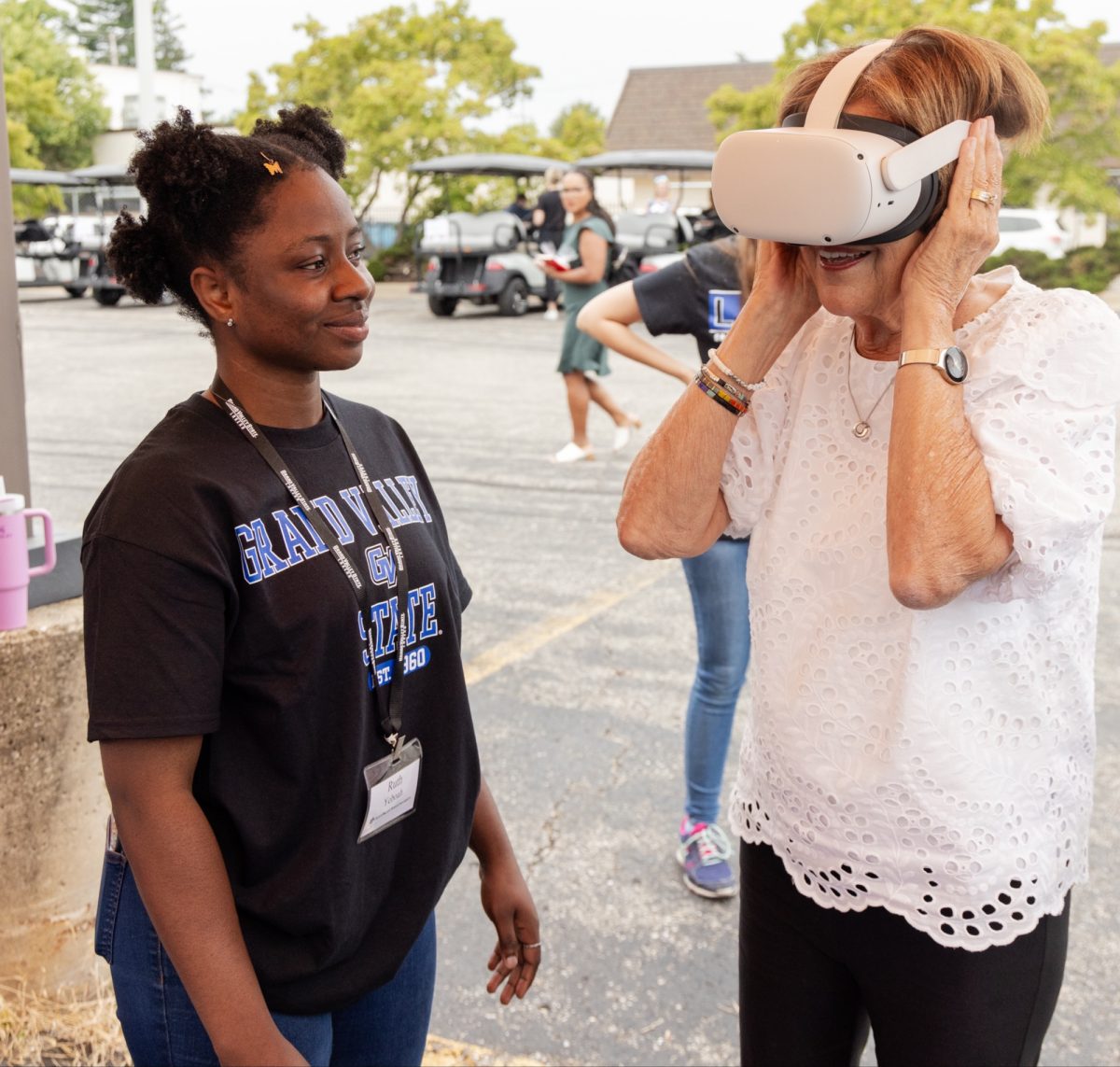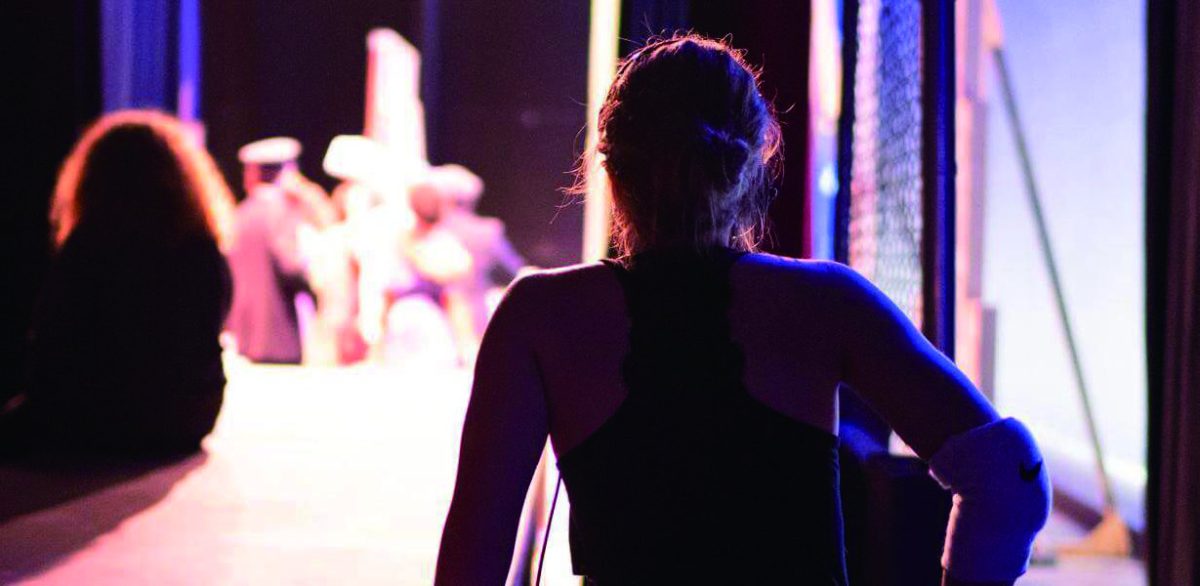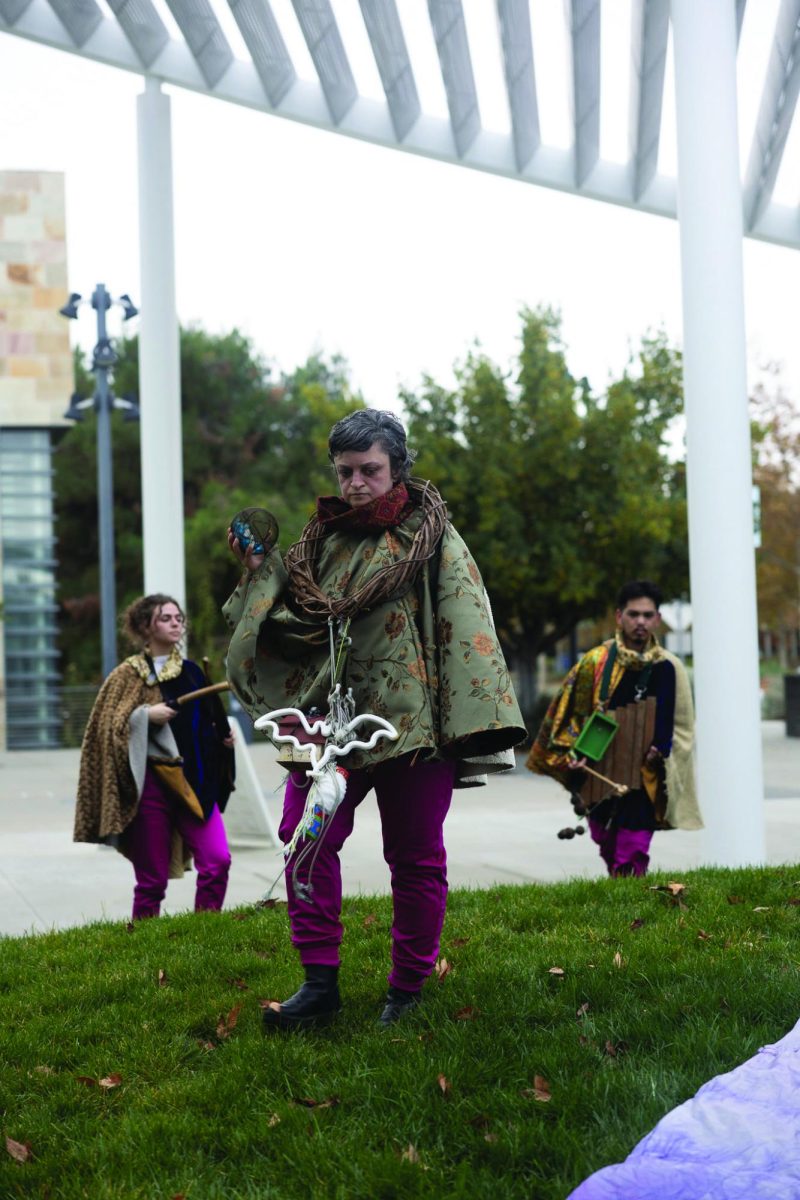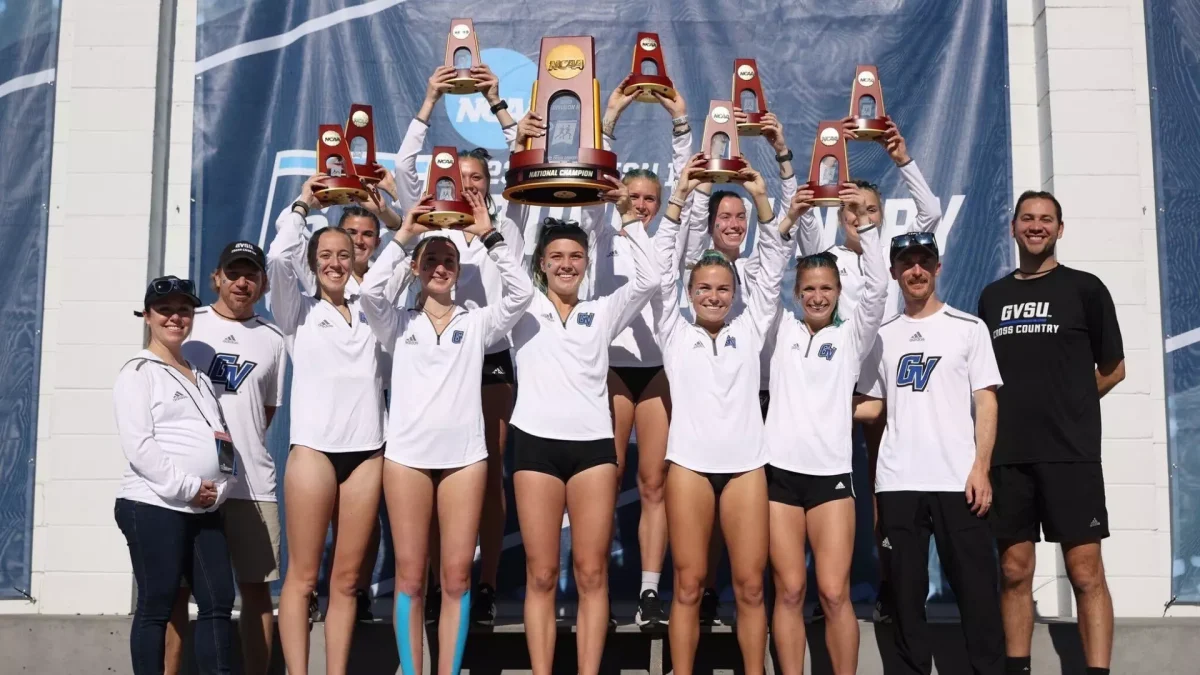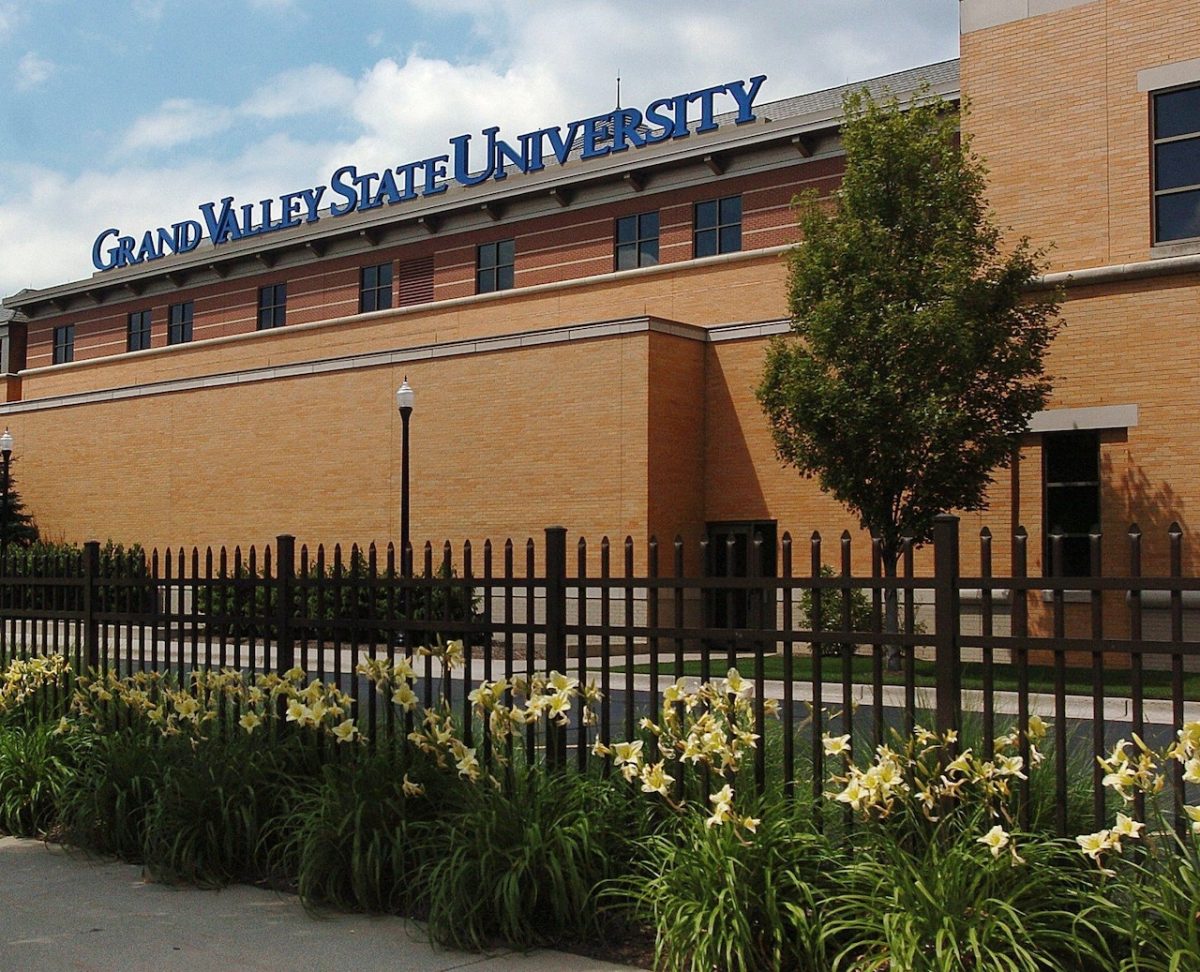Faculty, student discuss dropping out, returning to school
Jan 16, 2012
Grand Valley State University visiting professor Ruth Butler was going to be a nun when she first started college at what was then called Mercy College of Detroit, now University of Detroit Mercy.
“My first year of college I was in a convent — I was going to be a nun,” Butler said. “So I wised up about that, and then transferred to Eastern (Michigan University) and dropped out after my second year of college.”
That was the first time she dropped out of school, followed by another semester or so at Eastern and then a second drop out. A few years later, she returned to University of Detroit and double-majored in English and religious studies.
“I’d been in school all these years, 14 years by then, and always doing what I was supposed to do and following the plan, the structure you’re supposed to follow,” Butler said. “I remember sitting during the summer… and I just said, ‘You know, I don’t have to do what people want me to do, I can do what I want. Even if it’s nothing.’
“And it was one of my top five first grown-up decisions.”
She ended up going back to college a fourth time for her teacher certification, all-in-all taking her just short of nine years to complete her education.
Dropping out at GVSU
According to records kept by Institutional Analysis, of the 20,818 students enrolled for the Fall 2010 base term (with a Winter 2011 follow-up term), GVSU saw 5.4 percent, or 1,125 students, “drop out.”
Phillip Batty, director of Institutional Analysis at GVSU, said the term “dropout” is not exclusive to students who dropped out of college completely orpermanently. The term, as used in the university’s records, also constitutes students who are taking a semester off, doing study abroad or internships or sometimes transferring to other colleges or universities.
For fall of 2011, the estimated number of dropouts at GVSU (based on data as of Thursday) is marginally lower than fall of 2010 at 5.3 percent, or 1,110 of the 21,124 students enrolled.
“About 200 (17 percent) of each years’ dropouts were dismissed or in jeopardy of dismissal status due to poor grades,” Batty said. “Also, previous years’ data have shown that 20 to 25 percent of the dropouts re-enrolled at GVSU within a year.”
Senior Tayler Keefer made it through nearly three years at GVSU before taking a semester off, a decision that, much like Butler’s, was an expression of freedom in a time of confusion.
“I went for three years, and I guess I felt like I was pushed on this path that everyone was supposed to follow out of high school, especially coming from Forest Hills,” said Keefer, who attended Forest Hills Central High School in the suburbs of Cascade, Mich. “I mean, I went to school and I liked it, but I guess after awhile it just got really stressful, because it was like, ‘Why am I doing these classes if I don’t know exactly what I’m doing?’”
In August, Keefer got a full-time job at Spectrum Health as a registration specialist, and took the semester off before returning this winter.
Stuck on the fence of what she felt she should do, and what she felt like society wanted her to do, Keefer took a leap of faith.
“(I dropped out) because I guess I just decided that, at the time, there were more important things to focus on than school,” she said. “But I’ve never had to say that to myself before, you know? No one usually says there are more important things than school.”
For both Butler and Keefer, the constantly-posed questions of major completion and concrete career plans were, and continue to be, intimidating.
“It’s not hurting you, but it’s just another reminder that you’re either on the track or you’re not on the track,” Butler said. “So, who cares what Aunt Sally thinks in your day-to-day life? It’s just like society calling up and saying, ‘Hey, where are you, what are you doing, what are your plans?’ And I know that puts pressure on them — I see it in my kids, I see it in students — you know, ‘What am I supposed
to be doing?’
“You kind of measure yourself, not even consciously even, but it’s there. I think it’s expecting a lot of us at an age when we’re just not ready to declare our life goal.”
For Keefer, coming back to school was synonymous with anxiety. She worried about the logistics of picking up where she left off; what old professors would think about her absence, if she would be able to handle due dates and deadline pressure the second time around.
“I went to my first classes and I realized no one cared that I hadn’t been in school — I was the only one who cared,” Keefer said. “You see all these people viewing you and thinking you have to go to school, you have to stay on track but sometimes you may go off track a little bit. It doesn’t ruin things as much as you think it’s going to.”
The financial aftermath
Though problems with financial aid weren’t a factor for Keefer, Michelle Rhodes, director of financial aid at GVSU, said there can be different repercussions for students who drop out, depending on the situation.
If they drop out during a semester, financial aid must do a calculation to see if the federal government requires the university to return any of the financial aid the student was receiving, and can result in a bill for the student following assessment.
If a mid-semester drop out impacts their academic progress, they may not be eligible for aid when or if they return. Likewise, if a student was receiving scholarships, there is no guarantee those scholarships will be reinstated upon return, Rhodes said.
If a student takes enough time off, their loans could go into repayment.
“I would encourage any student who has questions about this to contact our office before they drop any classes to talk about their specific situation,” Rhodes said.
Making sense and pressing on
All money matters aside, Butler said looking at college from an alternative perspective
can help make the transition easier.
“There are a couple ways to look at a post-high school education,” she said. “One is to become a more well-rounded better person. The more you learn about the world the better you’ll understand it and the better citizen of life you’ll be. Most people do get a job. That’s a fact. And sometimes a degree is a minimum thing to get your foot in the door.”
Keefer said she’s excited to have a clear goal again now that she’s back in school. She’s not sure if she’ll drop out again, but she has made peace with uncertainty.
“I’m still trying to work out if I want a college degree, but I think that’s just because I’m still growing up and I don’t know what I want,” Keefer said. “No one knows what they want. I think, though, at the end of the day, I’m going to want a college degree.”
Butler’s advice to students like Keefer is simple: keep your chin up.
“A lot of people are in this situation, it’s a very rare person who when they were a senior in high school says ‘Yes, I want to be this and I’m on the four-year plan to be this,’” she said. “It’s a wonderful gift to have that, but it’s not unusual not to have that. So, just do the best you can, you’re not by yourself. And if you’re going to do it, you’ll go back to it if you are meant to, if it’s what you really want to do.”



